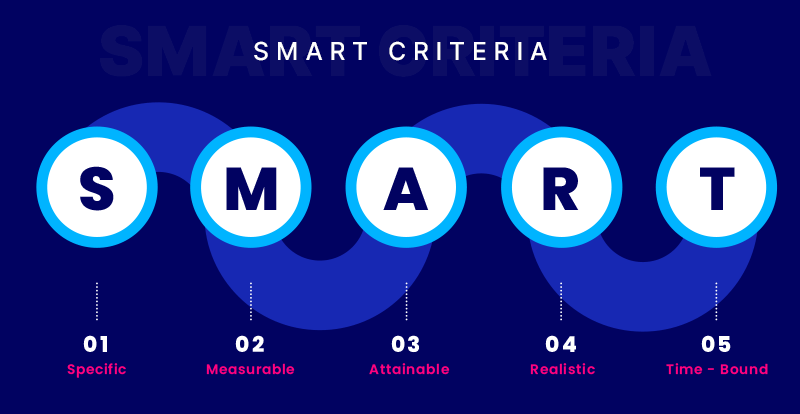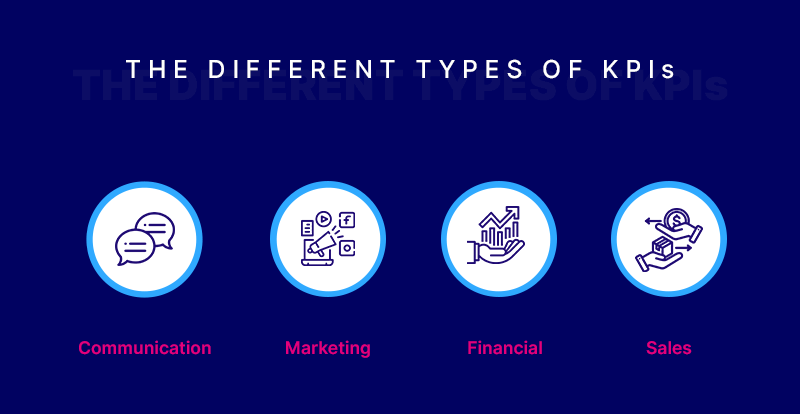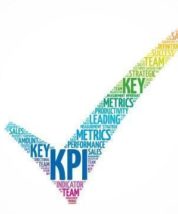Introduction
So, how to set KPIs to establish your key success indicators? Our specialists explain everything in the following sections.
What is a Key Performance Indicator?
KPIs, or Key Performance Indicators, are quantitative metrics used to assess the effectiveness and impact of digital campaigns and marketing strategies. They are essential tools for management and decision-making, enabling you to demonstrate the return on investment (ROI) of your marketing efforts and refine campaigns to align with your business goals. KPIs allow for a precise analysis of whether a company is meeting its business objectives or not, making them indispensable for informed decision-making.
How to set the right KPIs?
Start by defining a strategy
The first step in determining suitable KPIs is to establish a clear marketing strategy. The goal is to set specific and realistic objectives aligned with the company's strategic direction. Effective KPI setting should be easily understood and quantifiable, driving decisions rather than raising additional questions.
Identify your needs
To identify the necessary data groups for determining the appropriate KPIs, it's crucial to ask the right questions that will guide the selection of relevant data:
- What are the objectives of the current strategy?
- What criteria are used to assess the company's success?
- What variables are likely to influence the action plan's implementation?
These questions will shape your strategy and inform decision-making while establishing appropriate indicators. It's essential to align daily operational KPIs and strategic KPIs with the overall business strategy's objectives, including digital efforts like KPI digital metrics.
Evaluate existing data
KPIs are derived from integrated data from various systems and services. Therefore, conducting an audit of existing data is essential before beginning any new data collection. Ensure that your data collection is fully aligned with your strategy and addresses the issues identified earlier. This step is critical for how to measure KPI in digital marketing effectively.
Determine the right measurement method
Once the data is collected, finding the right measurement methodology is key to developing new KPIs or adjusting existing ones. The decision-maker must use actionable data to generate value through a well-functioning decision-making system. Employees should be involved in the selection process to discuss and assess the relevance of KPIs. Techniques such as brainstorming sessions or the affinity diagram (KJ method) can be used to stimulate idea generation and structure proposals.
Using SMART criteria can help you track your KPIs and ensure they are well-designed and aligned with your goals. Understanding KPI smart criteria is essential for refining your strategy.
What are the SMART characteristics of KPIs?
- Specific – Is your objective specific?
- Measurable – Is progress toward this goal measurable?
- Achievable and Ambitious – Is your goal attainable and challenging?
- Relevant – Is your goal aligned with your organization’s priorities?
- Time-bound – What is the timeframe for achieving this objective?
For example, if your goal is to increase your website's conversion rate, a SMART KPI might be: "Increase the conversion rate by 5% within the next three months by optimizing landing pages." This approach aligns with best practices on how to set KPIs for digital marketing.

Find the best way to communicate your KPIs
Key performance indicators facilitate the understanding of strategic actions. They are a crucial part of the overall corporate performance management dashboard. Tools like Google Data Studio or Google Ads can be used to track the performance of your actions and their impact on results in real-time. Using tools for KPI management is essential for tracking and communicating performance.
It's important to present this data visually, explicitly illustrating trends and variations. Your company’s IT and Business Intelligence teams can provide simple communication tools to make data clear, accessible, and actionable.
The different types of KPIs
- For communication purposes, KPIs can include metrics such as the number of brand mentions on social media, email open rates, website visitor-to-subscriber conversion rates, and the amount of positive or negative customer feedback. These are good online marketing KPIs examples.
- In marketing, KPIs might include the conversion rate of website visitors to buyers, email marketing campaign open rates, the number of leads generated by advertising campaigns, and the ROI of each marketing campaign. Understanding how to choose marketing KPIs is critical for optimizing these efforts.
- Financial KPIs can include gross profit, monthly revenue, monthly expenses, debt ratio, and equity ratio.
- For sales, relevant KPIs might include the number of sales made per month, the lead-to-customer conversion rate, the average time to close a sale, and customer retention rates.
It's essential to choose KPIs relevant to your company’s specific objectives and to monitor these metrics regularly to track performance and make informed strategic decisions. Referencing marketing KPI examples can help in choosing the right metrics.

Test the Performance of the Indicators
After defining your KPIs, it's crucial to assess their effectiveness regularly. KPIs are essential for improving your company’s results and gaining a competitive edge. However, some indicators may become irrelevant over time, negatively impacting performance. Regularly analyze these indicators to ensure their relevance. Focus on the most consistent ones, optimize them, and avoid "Vanity Metrics"—those attractive but ultimately useless indicators for your overall strategy.
How Eminence can elevate your KPI Strategy
At Eminence, we understand that setting and managing KPIs is not just about selecting the right metrics - it's about aligning those metrics with your unique business goals and ensuring they drive real results. Our team of experts is dedicated to helping you navigate the complexities of performance measurement, ensuring that your KPIs not only reflect your strategic objectives but also empower you to achieve them.
Tailored KPI Development
Every business is unique, which is why a one-size-fits-all approach to KPIs simply doesn't work. At Eminence, we start by gaining a deep understanding of your business, industry, and specific goals. We then work closely with you to develop KPIs that are perfectly tailored to your needs. Whether you’re aiming to increase conversion rates, boost customer retention, or enhance brand awareness, we ensure that your KPIs are specific, measurable, and actionable.
Advanced data analysis and reporting
Collecting data is only the first step; the real power lies in how that data is analyzed and presented. Our agency leverages cutting-edge tools and methodologies to not only gather data but also to transform it into actionable insights. With the help of our Experts, you’ll have a clear view of your performance at all times, enabling you to make informed decisions swiftly and confidently.
Continuous monitoring and optimization
The digital landscape is ever-evolving, and so too should your KPIs. We don’t just help you set and forget your KPIs; we stay with you every step of the way. Our team continuously monitors your performance metrics, identifying trends, opportunities, and areas for improvement. By regularly reassessing and optimizing your KPIs, we ensure that your business remains agile and competitive in a dynamic market.
Empowering your Team
At Eminence, we believe in empowering your team to make the most of your KPIs. We provide training and support to ensure that everyone in your organization understands the importance of these metrics and knows how to use them effectively. By fostering a KPI-driven culture, we help your entire team contribute to achieving your business objectives.
Strategic guidance and partnership
Beyond just numbers and reports, Eminence offers strategic guidance to help you integrate KPIs into your broader business strategy. We view our relationship with clients as a partnership, working collaboratively to ensure that your KPIs are not only aligned with your current goals but also adaptable to future growth and challenges.
Conclusion
In today’s fast-paced digital landscape, mastering KPIs is not just about tracking performance - it's about driving growth, refining strategies, and achieving long-term success. Setting the right KPIs allows businesses to focus on what truly matters, making informed decisions that lead to tangible results.
However, the process of defining, measuring, and optimizing KPIs can be complex and time-consuming. This is where Eminence comes in. With our tailored approach, advanced analytical tools, and continuous support, we ensure that your KPIs are not only aligned with your strategic goals but also evolve as your business grows. We don’t just provide metrics; we deliver insights and empower your team to take actionable steps toward success.
By partnering with Eminence, you gain more than just an agency - you gain a strategic ally committed to your growth. We work hand-in-hand with you to identify gaps, optimize performance, and drive your business forward. Our goal is to help you not only meet your objectives but exceed them, setting the stage for sustained success in an ever-changing market.
As you embark on or continue your journey in digital marketing, remember that KPIs are your roadmap to success. With the right partner by your side, you can turn those metrics into meaningful progress. Let Eminence be that partner, guiding you every step of the way to achieve your highest potential.



